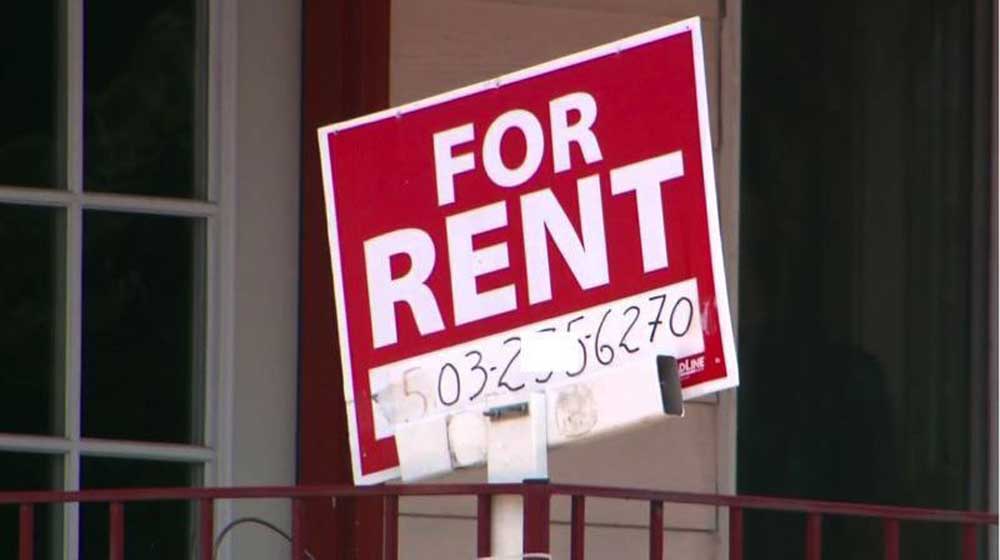Confusion over Portland area rental housing data
Published 1:01 pm Tuesday, March 15, 2022

- Max rent increase set
Confusion over the number of single-family rental houses in the Portland area surfaced on Tuesday.
The ECONorthwest economic consulting firm originally released a report saying Portland had lost at least 719 single-family rental houses since the City Council first declared an ongoing housing emergency in 2015.
But later in the day the firm retracted the report, saying additional research in response to questions showed a conflict with other data.
“ECONorthwest recently completed an analysis titled ‘Single family detached rental housing trends from 2015 to 2020 in the Portland Metro region.’ In it, we erroneously reported that the total number of single family detached rental housing units decreased by 28% in the city of Portland, from 2016 to 2020. We have discovered an error in our work and cannot stand by this finding until we further explore the data sets and analytical steps we used. Census data show an increase in total number of single family detached rental housing units, which at this time we have no evidence to suggest is incorrect. ECONorthwest prides itself on high-quality and accurate analysis. In this unusual case, the findings we reported do not meet our internal standards. We will be revisiting them,” said the Tuesday afternoon statement from the economic consulting firm.
The original report cited multiple data sources and it was not immediately clear which were contradicted.
The report was commissioned by Oregon REALTORS and Multifamily NW. It was released during a remote press conference on Tuesday morning. Participants described the properties being lost as naturally occurring affordable workforce housing for families with children or multiple generations that is not being replaced. Most of it has been lost in East Portland and Multnomah County, the report found.
Michael Havlik, deputy executive director of Multifamily Northwest, blamed the decline on state and local rental regulations that have been passed in recent years, including a Portland requirement that landlords pay the relocation of tenants who say they cannot afford their rent increases.
“A lot of our mom and pop members are choosing to sell their rentals because it has gotten increasing difficult to continue operating,” said Havlik.
Jeremy Rogers, director of legal affairs and public policy for Oregon REALTORS, agreed.
“Traditionally, landlord/tenant regulations have happened on the state level. These local regulations are new and complicated and many smaller landlords don’t have the resources to deal with them,” said Rogers.
“When surveyed, housing providers have indicated that the patchwork of rules in Oregon have disincentivized the creation and preservation of rental housing. Arguing that it is not worth the legal liability to own and operate rental housing even when the demand is strong,” said the report, titled “Single family detached rental housing trends from 2015 to 2020 in the Portland Metro region.”
The ECONorthwest report found the number of single-family rental houses declined in Portland from 2,599 units in 2016 to 1,880 in 2020, the most recent year for which information is available — a 28% reduction.
That is a majority of the single-family rental houses that were lost in the larger tri-county region, the study found. There, the number declined from 5,571 units in 2017 to 4,460 in 2020, a loss of 1,111 units, a 20% reduction.
Overall, 14% of all the single family detached housing in the Portland metro region is available as rental units, not counting auxiliary dwelling units (ADUs).
Although Portland leaders have encourage the production of multi-family housing, the press conference participants said not enough larger apartments have been built to replace the loss of the rental houses. Only around 400 three-to-five room apartments have been built in the city during the period covered by the study, said Mike Wilkerson, ECONorthwest’s director of analytics, who presented the study.
“If what we’re looking to replace is market rate three-to-five bedroom units, the market is not building enough to replace them. And there are not-trivial differences between apartments and detached houses,” said Wilkerson.
Those speaking at the press conference said state, regional and local leaders need to make it easier to build and operate all kinds of rental housing, including single-family detached houses.
“The city of Portland has been in a self-declared housing state of emergency since 2015, with many additional jurisdictions also declaring their own housing emergencies in the face of rapidly-dwindling housing stocks and out of control inflation of the cost of housing,” the report said.
“Oregon’s top elected leaders at the state, city and county levels have positioned themselves as housing advocates and supported an array of policies that sought to address the issue of housing instability brought on by a lack of housing supply. Due to the lack of coordination between state and local officials, Oregon now finds itself with a patchwork of different rules governing the creation and management of rental housing.”
Those speaking at the press conference said state, regional and local leaders need to make it easier to build and operate all kinds of rental housing, including single-family detached houses.








